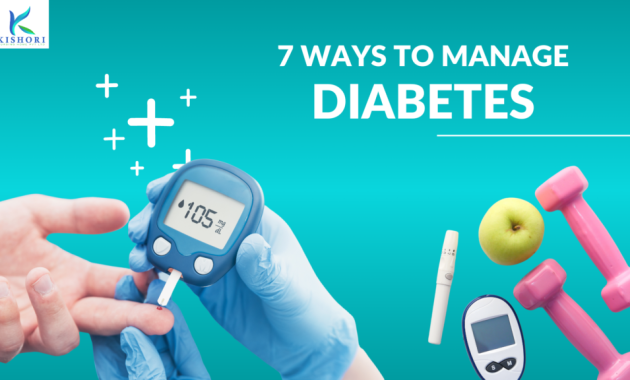
How to Manage Diabetes Easily Without Expensive Supplements: A Practical Guide
Diabetes, a chronic metabolic disorder, affects millions worldwide. Managing it effectively often feels daunting. Many believe expensive supplements are essential. This guide provides a practical approach to managing diabetes. It focuses on lifestyle changes, not costly supplements. Learn how to take control of your health. Discover sustainable methods for diabetes management.
This article explores effective strategies. It helps you manage diabetes easily. The focus is on natural, accessible methods. We’ll delve into diet, exercise, and stress management. These are key components of diabetes care. We will explore how you can manage diabetes without expensive supplements. This approach promotes long-term health and well-being. It empowers you to make informed decisions.
Understanding Diabetes: A Brief Overview
Diabetes is a group of diseases. It affects how your body uses glucose. Glucose is the primary source of energy. There are several types of diabetes. The most common are Type 1 and Type 2. Type 1 diabetes is an autoimmune disease. The body attacks insulin-producing cells. Type 2 diabetes is more common. It often involves insulin resistance. The body doesn’t use insulin properly. This leads to high blood sugar levels.
Symptoms of diabetes can vary. Common symptoms include increased thirst and frequent urination. Other signs are unexplained weight loss and fatigue. Blurred vision and slow-healing sores are also common. Early diagnosis and management are crucial. This prevents serious health complications. These complications include heart disease and nerve damage.
The Power of Diet: Your First Line of Defense
Diet plays a vital role in diabetes management. What you eat significantly impacts blood sugar levels. A well-planned diet can help stabilize glucose. It reduces the need for expensive supplements. The focus should be on whole, unprocessed foods. These foods provide essential nutrients. They also have a lower impact on blood sugar.
Embrace a Balanced Diet
A balanced diet includes various food groups. Focus on non-starchy vegetables. Include lean proteins and healthy fats. Choose whole grains over refined carbohydrates. These choices help control blood sugar. They also provide sustained energy. Fruits should be consumed in moderation. They contain natural sugars. Portion control is another critical aspect of dietary management.
Foods to Prioritize
Prioritize non-starchy vegetables. Examples are spinach, broccoli, and kale. These are low in carbohydrates. They are also high in fiber and nutrients. Choose lean proteins like chicken and fish. Include healthy fats such as avocados and olive oil. Opt for whole grains, like brown rice and quinoa. These have a lower glycemic index.
Foods to Limit or Avoid
Limit refined carbohydrates like white bread and pasta. Avoid sugary drinks and processed foods. Reduce the intake of saturated and trans fats. These can worsen insulin resistance. Be mindful of portion sizes. Overeating can lead to blood sugar spikes. Always consult a healthcare professional. They can help create a personalized meal plan.
The Role of Exercise: Moving Towards Better Health
Regular physical activity is essential. It enhances insulin sensitivity. It also helps manage diabetes effectively. Exercise does not require expensive equipment. Simple activities can make a significant difference. Aim for at least 150 minutes of moderate-intensity exercise. This should be done each week.
Types of Exercise
Both aerobic and resistance exercises are beneficial. Aerobic exercises include walking, running, and swimming. These improve cardiovascular health. Resistance exercises include weightlifting and bodyweight exercises. These build muscle mass. Muscle helps regulate blood sugar. Combining both types of exercise is ideal.
Creating an Exercise Routine
Start slowly and gradually increase intensity. Choose activities you enjoy. This will make it easier to stick to your routine. Find an exercise buddy for motivation. Monitor your blood sugar levels before and after exercise. This will help you understand how your body responds. Consult your doctor before starting a new exercise program. This is especially important if you have other health conditions.
Stress Management: The Unsung Hero
Chronic stress can negatively affect blood sugar levels. It can also exacerbate diabetes symptoms. Managing stress is a crucial aspect of diabetes management. It can reduce the need for expensive supplements. Several techniques can help manage stress effectively. These techniques are accessible and easy to implement.
Techniques for Stress Reduction
Practice deep breathing exercises. Try meditation or mindfulness. Engage in activities you enjoy. Get enough sleep each night. Connect with friends and family for support. Consider joining a support group. These strategies can reduce stress levels. They also improve overall well-being.
Mindfulness and Meditation
Mindfulness involves focusing on the present moment. Meditation can reduce stress hormones. It can also improve emotional regulation. Even a few minutes of meditation daily can make a difference. There are many guided meditation resources available online. These are easy to access and use.
Monitoring Blood Sugar: Your Daily Check-In
Regular blood sugar monitoring is essential. It helps you understand how your body responds. It also allows you to make necessary adjustments. This can be done without relying on expensive supplements. Monitoring your blood sugar helps you stay in control.
Tools for Monitoring
Use a blood glucose meter to check your sugar levels. Continuous glucose monitors (CGMs) are also available. These provide real-time glucose readings. Keep a log of your readings. Note down the time, and the food you ate. Also note any exercise or medication taken. This helps identify patterns and trends.
Interpreting Your Results
Work with your healthcare provider. They can help you understand your results. They will also provide tailored advice. Learn about your target blood sugar ranges. Adjust your diet, exercise, and medication. This is based on your readings. Regular monitoring empowers you. It also allows you to manage diabetes effectively.
The Role of Medication (When Necessary)
Medication is often a part of diabetes management. It may not always be avoidable, even when managing diabetes without expensive supplements. Work closely with your doctor. They can help determine the best medication for you. They consider your specific needs and health status.
Types of Medications
Common medications include metformin and insulin. Other options include sulfonylureas and GLP-1 receptor agonists. Each medication works differently. They affect blood sugar levels in various ways. Discuss the benefits and risks of each medication with your doctor. This ensures you make informed decisions.
Managing Side Effects
Medications can have side effects. Talk to your doctor about any concerns. They can help manage these side effects. Always take your medication as prescribed. Never adjust your dosage without consulting your doctor. This is critical for effective diabetes management.
Lifestyle Modifications: The Core of Diabetes Management
Lifestyle modifications are the cornerstone of diabetes management. They are more important than expensive supplements. These modifications include diet, exercise, and stress management. They also include regular blood sugar monitoring. These changes empower you to take control. They also improve your overall health.
Building Sustainable Habits
Make small, gradual changes. This makes it easier to adopt new habits. Set realistic goals and celebrate your successes. Find support from friends, family, or support groups. Be patient. It takes time to see results. Focus on long-term lifestyle changes. These will bring lasting benefits.
Seeking Professional Guidance
Work with a healthcare team. This includes a doctor, a registered dietitian, and an endocrinologist. They can provide personalized guidance. They can also help you create a comprehensive management plan. Regular check-ups are essential. They monitor your progress and make necessary adjustments. Consider seeking advice from a certified diabetes educator. They can provide valuable insights.
Debunking Myths About Diabetes Supplements
Many people believe expensive supplements are necessary. This is not always true. The focus should be on lifestyle changes. These modifications are more effective. They are also more sustainable.
The Truth About Supplements
Some supplements may offer limited benefits. Always discuss supplements with your doctor. They can assess their safety and effectiveness. Focus on evidence-based strategies. These include diet, exercise, and stress management. These are the foundation of effective diabetes management.
Prioritizing What Matters
Prioritize the fundamentals of diabetes care. These are diet, exercise, and stress management. These are more impactful than expensive supplements. Focus on building healthy habits. These will support your long-term health. This approach empowers you to manage diabetes effectively. It also reduces reliance on costly solutions.
Conclusion: Taking Control of Your Health
Managing diabetes easily without expensive supplements is achievable. It requires commitment and informed choices. Focus on diet, exercise, and stress management. These are the cornerstones of effective diabetes care. Regular blood sugar monitoring is also vital. It helps you stay in control.
Embrace a healthy lifestyle. Seek guidance from healthcare professionals. These steps will empower you. They will also help you manage diabetes effectively. They also improve your overall well-being. Remember, you can take control. You can live a healthy, fulfilling life.
By following these guidelines, you can manage diabetes. You can do so without relying on expensive supplements. Focus on the fundamentals. Make informed choices. Take control of your health. This journey to better health is within your reach.
[See also: Related Article Titles]

